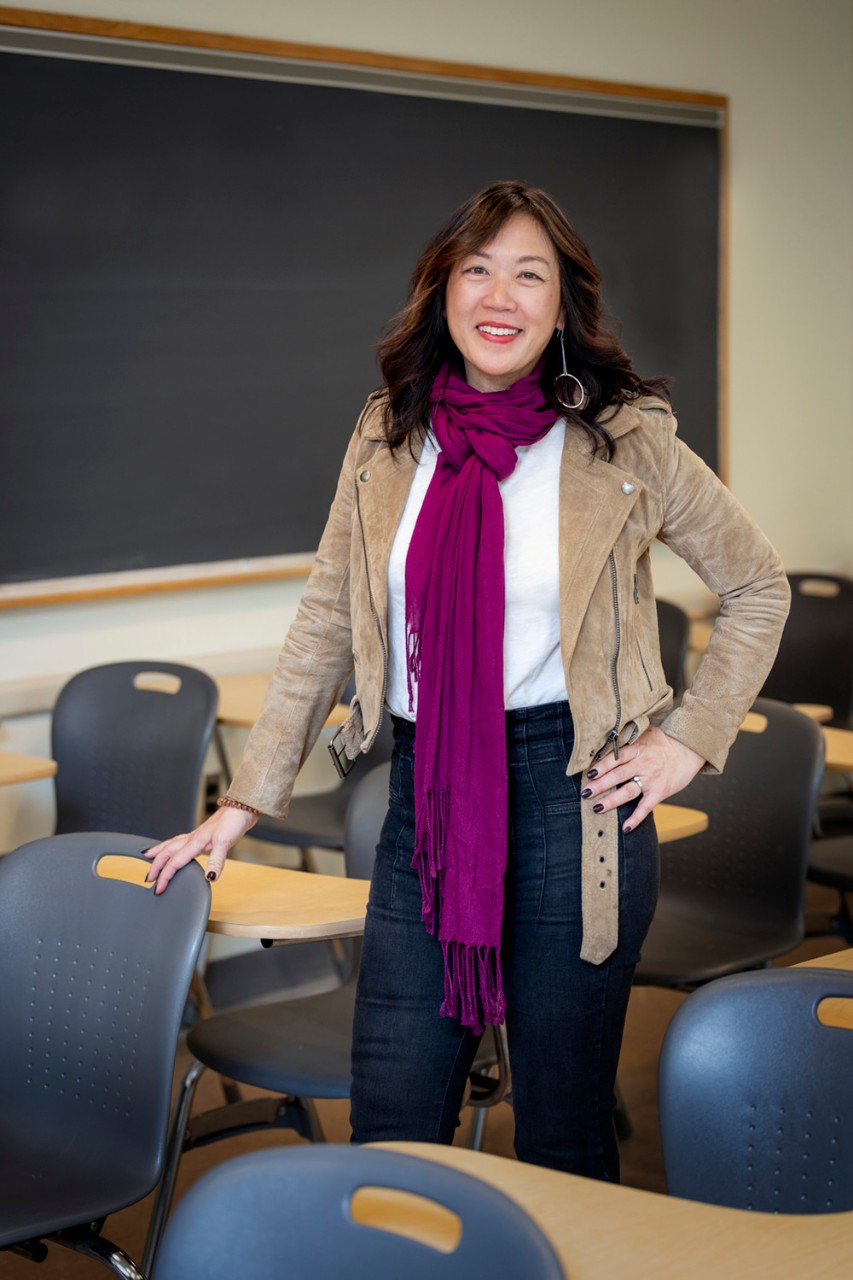Mario Aranda | Pixabay
The faces of the 300 parents and guardians attending the first orientation session for the Boston College Class of 2026 revealed emotions ranging from hopefulness to consternation as they filed into Robsham Theater Arts Center for a presentation on a heady topic: how to help their new first-year students find their way, both in college and in life.
Leading the seminar were Belle Liang, a professor in the Lynch School of Education and Human Development’s Counseling, Developmental, and Educational Psychology department, and Tim Klein, a licensed certified social worker and project lead for Liang’s True North digital app, designed to help students discover pathways to finding purpose in college and life. The duo are the co-authors of How to Navigate Life: The New Science of Finding Your Way in School, Career, and Beyond, a new book to be released in August.
Given the session’s pre-college timing, the lecture’s title, and the families’ current and future university investment, expectations for a surefire path to success were high. But Liang and Klein, in a congenial, empathetic, and research-driven way, re-routed the attendees’ focus away from student performance toward finding “purpose” — their child’s “true north” — which according to the authors is the key to harnessing the core qualities that lead to choosing a course of study and a career.
“Instead of following a step-by-step set of directions, life should be guided by a personal compass,” said Liang, highlighting the book’s central theme. “Having a clear sense of purpose, grounded in core values, can help your students choose the best direction for themselves.”
“ Instead of following a step-by-step set of directions, life should be guided by a personal compass. Having a clear sense of purpose, grounded in core values, can help your students choose the best direction for themselves. ”
William Stixrud, a clinical neuropsychologist, and PrepMatters’ founder Ned Johnson, the authors of The Self-Driven Child, characterized How to Navigate Life as an “important book that offers dozens of strategies for self-discovery, for supporting young people’s sense of autonomy, and for affirming their emerging sense of self.
“Liang and Klein skillfully teach parents, educators, and other caring adults how to build respectful, genuine, and trusting relationships with their children and students...to guide young people to discover who they really are and become their best selves.”
Elon University’s President Emeritus Leo M. Lambert, and Peter Felton, assistant provost for Teaching and Learning, the co-authors of Relationship-Rich Education: How Human Connection Drive Success in College, noted that “at a time when young people are clamoring for guidance to make sense of the world and to navigate college, life, and careers, Liang and Klein have written a guidebook that is clear, insightful, honest and practical.”
Tufts University’s Richard M. Lerner, an expert in positive youth development, praised the book as "masterfully written, compelling, and engaging,” while providing “answers to parents’ fundamental concern: How to raise children whose lives involve not only financial well-being but positive purpose, valued contributions to self and others, and joy and fulfillment.”
Dr. Pamela Ebstyne King, executive director of the Thrive Center for Human Development, described the book as “one of the most helpful and hopeful applications of psychology that I have ever read."
Phil Gloudemans | University Communications | July 2022





